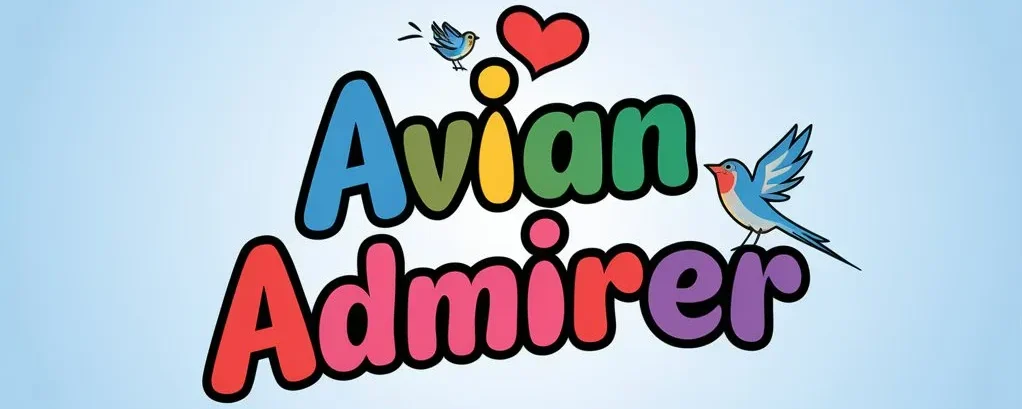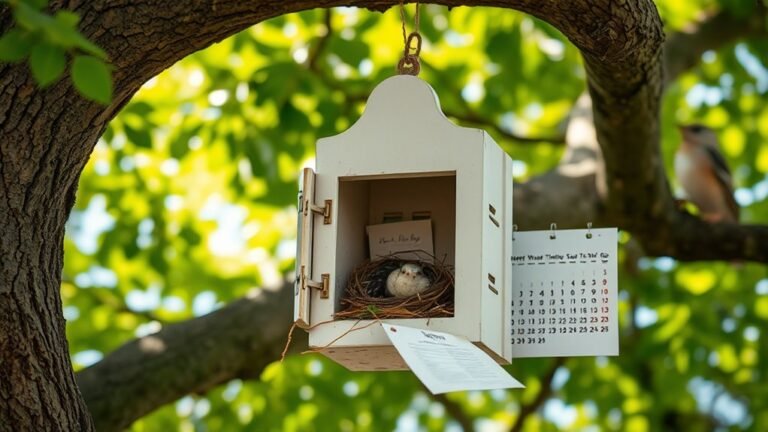Bird That Sounds Like a Whistle: Melodious Mimics
Certain birds attract attention with their whistling calls. These birds, like mockingbirds, mimic sounds from their environment. They also use their songs to share important messages. Studying how these birds create their unique calls helps us understand their behavior. Various factors influence this skill in birds. What drives this amazing ability in birds?
Key Takeaways
- Mockingbirds are famous for their beautiful whistling and ability to copy sounds from their surroundings.
- Eastern Whip-poor-wills make chilling whistling calls during mating season, enchanting listeners with their rhythmic tunes.
- American Woodcocks showcase a unique whistling flight display, adding to their charm in local stories.
- Birds use vocal sounds for attracting mates and marking territory, highlighting their social interactions and identities.
- To spot whistling birds, listen carefully to the patterns in their calls while staying quiet. This can improve your birdwatching experience.
The Art of Whistling: How Birds Develop Their Unique Calls

Whistling may appear simple, but for many birds, it's a skilled activity linked to their biology and environment. Birds learn various whistling methods by watching each other and using their surroundings as inspiration.
Many birds, such as songbirds and parrots, imitate sounds. They mimic the calls of others to improve their own skills. Each bird species makes unique sounds for specific reasons. These sounds help attract mates, defend territories, or communicate with their groups.
When you observe birds in nature, think about how their songs show their social ties, relationships, and identities. This combination of biology and behavior creates the beautiful sounds we hear from birds.
Noteworthy Whistle-Sounding Birds Around the World
Many birds are known for their unique whistling sounds. Each species uses these vocalizations to adapt to their environment.
For instance, the Eastern Whip-poor-will has a haunting call that helps attract mates and establish territory. Identifying bird whistles can provide insights into their ecosystems and behaviors.
In various cultures, birds like the American Woodcock inspire folklore and stories. Their whistles hold meaning, connecting people to nature.
These melodic calls enhance the experience of being in nature, highlighting the bond between humans and wildlife. By appreciating these sounds, you deepen your understanding of avian life.
The Role of Vocal Mimicry in Bird Communication

Birds are skilled at mimicking sounds, which plays a vital role in how they communicate.
Vocal mimicry helps birds send clear messages to each other. By copying calls from their surroundings, they can mark their territory, attract mates, or alert others of danger.
This ability strengthens their social bonds and helps them connect with other birds. Mimicry also allows them to adjust their communication based on the situation, making their interactions richer.
Learning about this behavior lets us appreciate how these vocal creatures communicate and form their communities.
Exploring Habitats: Where to Find These Whistle Performers
Birds that produce whistle-like sounds live in many types of habitats. Each habitat offers different chances to observe these birds. For example, some birds thrive in lush forests. In these areas, dense plants help amplify their vocal displays.
Other birds prefer open grasslands or wetlands, where their calls can travel farther. The location of these birds also matters. The Eastern Whip-poor-will, for instance, is often found in North American woodlands. Certain mockingbirds can be seen in both cities and rural areas across the continent.
The Connection Between Birds and Their Environments

Birds and their environments are deeply connected. Understanding how they interact can help us see the important relationships that affect their behavior and sounds. Birds adapt well to their habitats. They develop specific traits that help them survive in different ecosystems.
For example, dense leaves may lead a bird to choose particular places for nesting or specific ways of calling to others.
Environmental factors like temperature, food availability, and human actions also push birds to change their behaviors. These changes are vital for their survival and create a strong link between birds and their surroundings.
Tips for Birdwatching: Listening for Whistle Sounds
Birdwatching can be a rewarding experience. Listening for whistle sounds can enhance your enjoyment.
Here are three simple techniques to improve your listening skills:
- Stay quiet: Move slowly and speak softly. This will help you hear the whistling sounds better.
- Focus on patterns: Listen for repeating whistles. These patterns can help you identify specific birds.
- Use binoculars: When you hear a whistle, try to spot the bird. Seeing the bird can give you insight into its behavior.
With practice, these techniques will help you connect more with nature and appreciate the sounds that birds make.
Enjoy your birdwatching!
Frequently Asked Questions
Do All Birds Use Whistles for Communication?
Not all birds use whistles to communicate. Different bird species produce various sounds. Some birds prefer trills. Others use calls to share information in their environments. Each species has its own way of sending messages.
Can Whistles Indicate a Bird's Health or Mood?
Bird whistles can indicate their health and mood. Changes in pitch or rhythm may signal stress, illness, or contentment. By paying attention to these sounds, you can better understand your bird's emotional state and well-being.
How Do Environmental Changes Affect Bird Calls?
Environmental changes, such as habitat loss and climate change, affect bird calls. These changes alter the birds' environments and disrupt their communication. You may notice changes in their vocalizations as species adapt to new challenges and reduced habitats.
Are Bird Whistles Specific to Certain Species?
Yes, bird whistles vary by species. Each bird species has its own unique sounds. These whistles help birds communicate, find mates, and defend their territory. Learning to recognize these calls can enhance your understanding of different bird species and their roles in nature.
What Role Does Age Play in a Bird's Whistling Ability?
Age influences a bird's whistling ability. Young birds learn to whistle by listening and imitating older birds. As they grow, they develop their skills. Older birds often have more complex and varied calls. Experience gained through age enhances their whistling ability. This process shows how important age is for a bird's vocal skills.

Ava is a bird enthusiast and nature lover who has spent countless hours observing and learning about the fascinating world of birds. With a passion for sharing her knowledge and inspiring others to appreciate the beauty of birds, Ava writes about her experiences and insights on avianadmirer.com.







